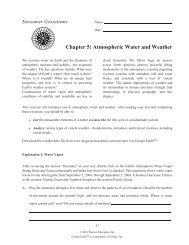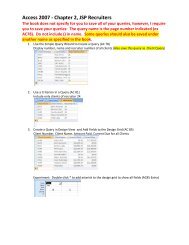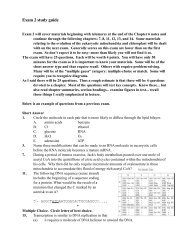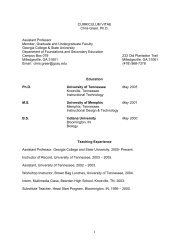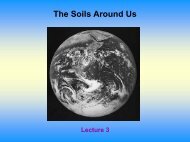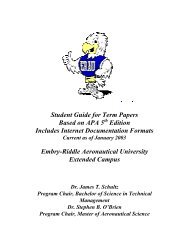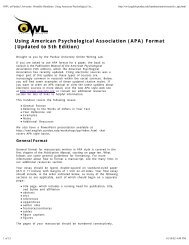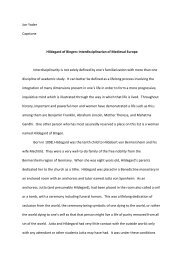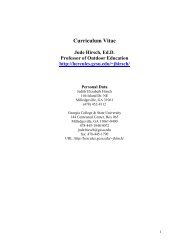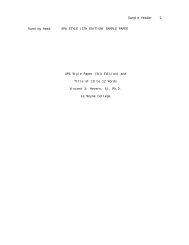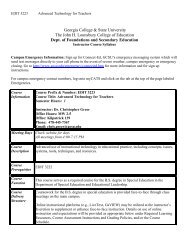study questions
study questions
study questions
- No tags were found...
You also want an ePaper? Increase the reach of your titles
YUMPU automatically turns print PDFs into web optimized ePapers that Google loves.
18. What are the differences among personal commitment, moral commitment,and structural commitment?19. How do Asian students view their relationships differently from Americanstudents?20. When Huston, McHale and Crouter examined changes in the behavior patternsof newlyweds they found what? How were these things related to maritalhappiness six years later?21. How did “courtly love” in the middle Ages change our present views onmarriage and similar relationships? Why was societal recognition of intrinsicworth important?22. Erikson argued that acquisition of religious and political belief systems areparticularly important for ego identity development. What are your politicalbeliefs, your affiliations?23. The American Council of Education has raised what concerns about collegestudents’ goals, values, and aspirations over the past 30 years?24. Why are you in college? In what ways do you expect to become involved inyour community in the next year? Five years? Ten years?CHAPTER 3: The Middle Years—Generativity and Responsibility1. What are the two reasons that middle age is described as a twentieth-centurydevelopment in the human life cycle?2. Describe Erikson’s theory of the dilemma of Generativity vs. Stagnation.3. What are the seven components of generativity according to the work ofMcAdams, et. Al.?4. How is the “sandwiched generation” defined in terms of Sequential vs.Simultaneous care of others? Where do you see yourself in the future of yourfamily?5. What is the “parental imperative”? What did your parents set aside for yourdevelopment (and of course that of your siblings)?6. What did Silverberg and Steinberg find about parents and their psychologicalinvestments both in and outside of the family?7. How do “later middle aged” parents appraise their children and how is it tiedto their own developmental stage?8. Why is it difficult to determine the directionality of the relationship betweenparents’ well being and the adjustment/attainment of their adult children?9. Where are most of the elderly cared for? Who provides care for them? Whatdo you suppose are the expectations in your family concerning the care ofyour grandparents? The care of your parents?10. What types of emotional strains do the caregivers experience?11. What is the median age for menopause? What factors are associated withearly onset? How has menopause been viewed historically? What is theconnection between menopause and depression?12. Explain the case of women in Rajput, and purdah. What implication does thishave for our views of menopause?13. What is the actual experience of menopause for most women?14. Is menopause associated with any diseases?15. What is the crisis model of development? Where did it originate?16. What is the transition model and how does it differ from the crisis model?17. Why do some studies conclude that midlife crises are common while others donot?18. What are the economic prospects of the baby boomers? How does the secondwave differ from the first wave?



